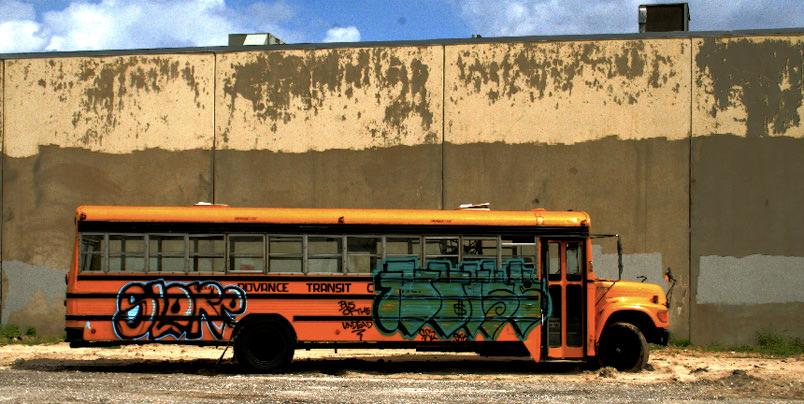 Education
Education
The Questions Education Reformers Aren’t Asking
Mar 19, 2010 Mike Rose notes that no one in power is asking fundamental questions about the purpose of education and whether much-hyped reforms might do more harm than good.No one in power is asking fundamental questions about the purpose of education and whether much-hyped reforms might do more harm than good. 1 2 3 4 5Part Four: 21st Century Skills: Education’s New Cliché
In all the current talk about school reform, there is one phrase that you will hear in every proposal, whether it comes from the president or the local school board. That phrase is 21st century skills. Provide students with 21st century skills for a 21st century economy. The label is a powerful one, heralding a new era, high-tech and prosperous.
But like so much in education reform, an idea that has some merit can quickly get reduced to a cliché. In one document I read, the phrase 21st century skills was repeated 25 times in less than two pages. And once you make your way through the cant, the 21st-century-skills approach has some troubling implications for education.
What are these skills? There are a number of definitions and lists, some running up to nine pages. Here’s a summary drawn from the Southern Regional Education Board. Twenty-first century skills include the ability to use a range of electronic technologies to access, synthesize and apply information. The ability to think critically and creatively and evaluate the products of one’s thinking. The ability to communicate effectively and collaborate with others, particularly in diverse and multicultural settings.
The range of skills is admirable, as is the intention that they apply to all students -- an equity imperative. But what’s new about them? They sound like the skills one would have gotten from a good 20th century education -- or from a lot further back than that.
You’ll find discussion of evaluating evidence or communicating effectively in Aristotle. The exception would be the emphasis on electronic media, but even here the underlying competencies -- evaluating sources, synthesizing information -- are good old-fashioned ones.
Why begrudge the 21st-century-skills advocates their use of the politically effective mantle of newness?
The characterization of these skills as new implies that they haven’t been taught before. And this characterization plays into the inaccurate claim -- popular in some conservative reform circles -- that America’s schools have failed on a grand scale. This dangerous claim keeps us from drawing on what we already do well, and creates a false separation between one educational era and another. The rhetoric of the new plays into our easy dichotomizing of “old is bad / new is good” and our fetish for the next big thing -- the examination of which ought to be a 21st century skill.
Of broader concern is the philosophy of education embodied in this reform.
As extensive as some of the lists of 21st century skills are, there are topics you won’t find: aesthetics, intellectual play, imagination, the pleasure of a subject, wonder. The focus of the lists -- even when creativity is mentioned -- is overwhelmingly on utility and workplace productivity.
The irony is that a rich engagement with the subjects that are central to this skills-based reform -- mathematics, science, electronic technology -- involves for many young enthusiasts (not to mention experts) these same imaginative and aesthetic qualities. But the utilitarian concentration of the lists on production precludes these less tangible, but intellectually important, aspects of a good education.
The 21st-century-skills philosophy of education is an economic one. The primary goal is to create efficient and effective workers. Twenty-first century skills for the 21st century organization man and woman.
The economic motive has always figured in the spread of mass education in the United States, but recently it has predominated, edging out all the other reasons we send kids to school: civic, social, ethical, developmental. Even those 21st century skills that do deal with the civic, such as cross-cultural understanding, are expressed in terms of workplace effectiveness.
Take, for example, these items drawn from the advocacy group Partnership for 21st Century Skills:
- Understand, negotiate and balance diverse views and beliefs to reach workable solutions, particularly in multicultural environments.
- Leverage social and cultural differences to create new ideas and increase both innovation and quality of work.
These are worthy, and we certainly could benefit from their spirit of cooperation. But the focus is very much on getting something done in the workplace. There are other important educational and civic goals related to interacting with others of different backgrounds and beliefs. For starters, there is knowledge of cultural practices -- of the very notion of culture -- along with the appreciation of our common humanity. There might be nothing immediately “leveraged” from such understanding, but it has great civic and personal value.
This is a promising time for education. Reform is a priority in a number of states, and the federal government is about to infuse an unprecedented amount of money into the schools. All this is happening at a time of great anxiety about the economy, so a focus on the workplace has understandable appeal. But we need to be careful to not let that anxiety narrow the purpose of education in America, regardless of what century we are in.
Continued: Race to the Top of What? Education Is About More Than Jobs



You need to be a supporter to comment.
There are currently no responses to this article.
Be the first to respond.